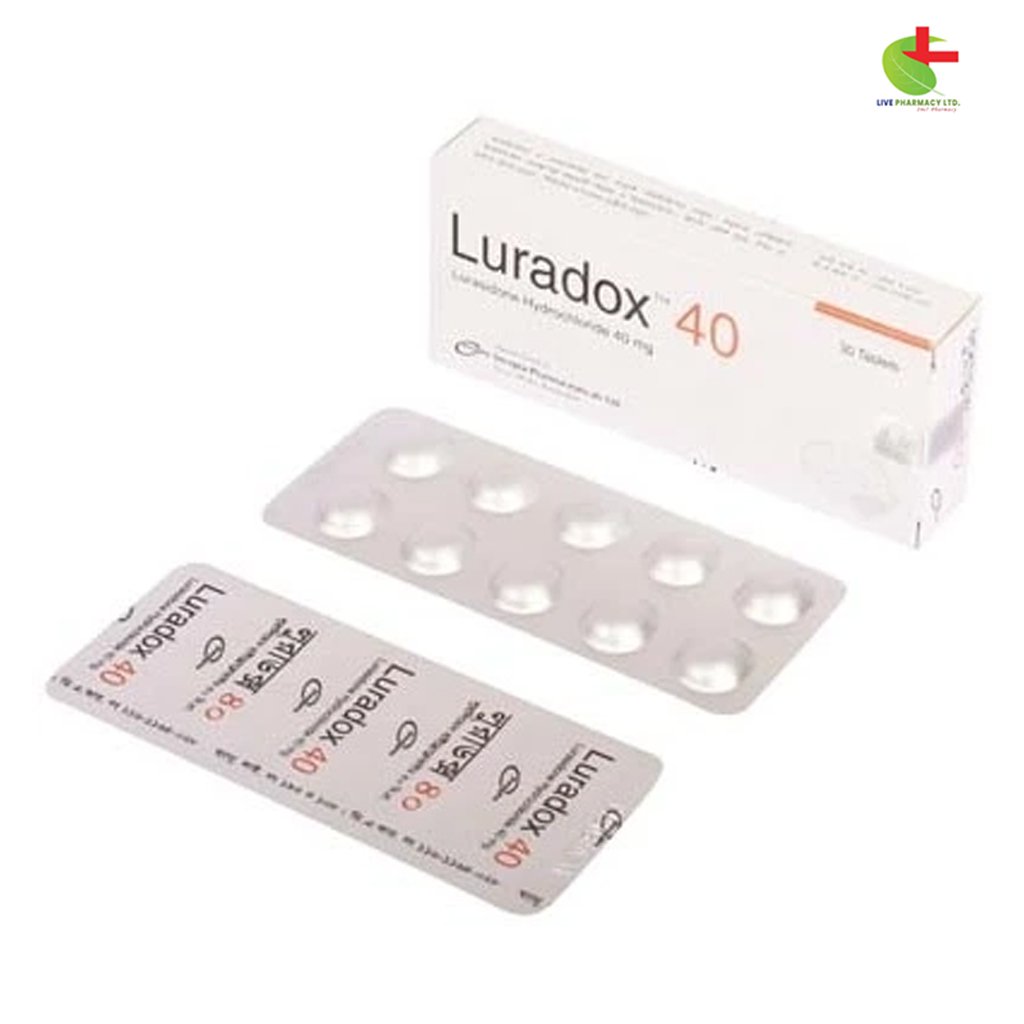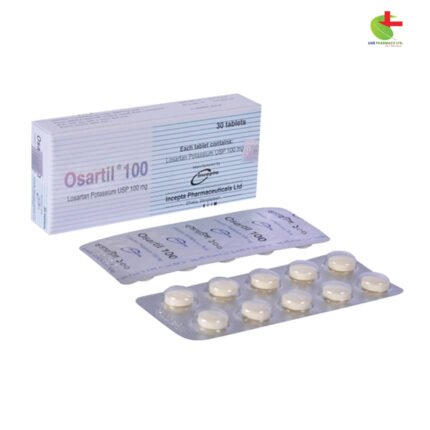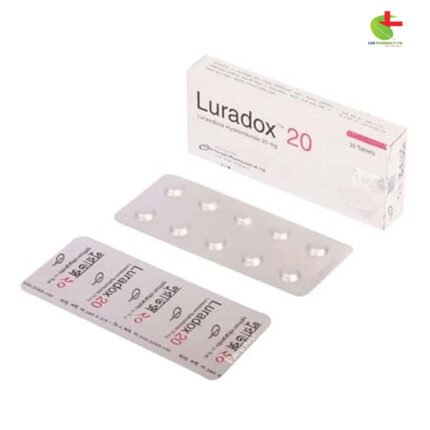Luradox 40
350.00৳ Strip
- Luradox is an atypical antipsychotic used to treat schizophrenia and depressive episodes associated with Bipolar I Disorder.
- It works by blocking dopamine D2 and serotonin 5HT2A receptors, helping to manage symptoms effectively.
- Available in various dosages, it should be taken with food to enhance absorption.
- Always consult a healthcare professional before use to ensure safety and efficacy.
 Brand
Brand
|
Incepta Pharmaceuticals Ltd |
|---|---|
 Generics
Generics
|
Lurasidone Hydrochloride |
 Type
Type
|
Tablet |
Indications
Luradox is an atypical antipsychotic indicated for the management of schizophrenia and depressive episodes linked to Bipolar I Disorder, both as a standalone treatment and as an adjunctive therapy with lithium or valproate.
Consult a registered healthcare professional before use.
Pharmacology
Luradox’s efficacy in treating schizophrenia is believed to stem from its ability to antagonize both central Dopamine D2 and Serotonin 5HT2A receptors.
Dosage & Administration
For schizophrenia, the initial dose is 40 mg daily, with a range of 40 mg to 160 mg as needed. For bipolar depression, start at 20 mg daily, adjusting to a maximum of 120 mg. It’s important to take Luradox with food to enhance absorption.
Consult a registered healthcare professional before use.
Interactions
If using Luradox with moderate CYP3A4 inhibitors, reduce the dose by half. Grapefruit and its juice should be avoided as they can interfere with Luradox levels.
Contraindications
Luradox is contraindicated in patients with hypersensitivity, and those taking strong CYP3A4 inhibitors or inducers, as well as individuals with dementia-related psychosis.
Side Effects
Common side effects may include drowsiness, akathisia, extrapyramidal symptoms, and nausea.
Pregnancy & Lactation
Lurasidone falls under Pregnancy Category B and should be used during pregnancy only if the benefits outweigh risks. Breastfeeding is not advised while on this medication.
Precautions & Warnings
Elderly patients with dementia-related psychosis may experience increased cerebrovascular risks. Monitor for serious conditions like neuroleptic malignant syndrome, tardive dyskinesia, and metabolic changes such as hyperglycemia, dyslipidemia, and weight gain.
Use in Special Populations
For patients with moderate to severe renal impairment, the recommended starting dose is 20 mg, with a maximum of 80 mg. In moderate hepatic impairment, begin with 20 mg and cap at 80 mg; for severe impairment, the max is 40 mg.
Therapeutic Class
Atypical neuroleptic agents.
Storage Conditions
Store below 30°C, away from light and moisture, and out of reach of children.













Reviews
There are no reviews yet.